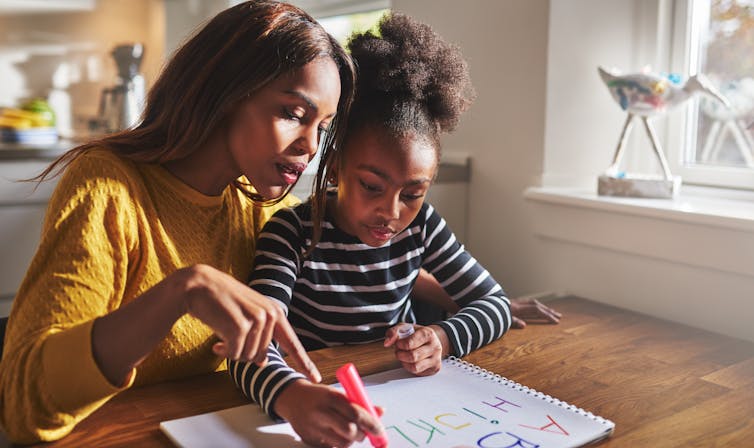
Bianca Parry, University of South Africa
Nearly 38% of households in South Africa are headed by women. They largely – or solely – support the home financially as breadwinners. That amounts to nearly 6.1 million homes in which women are the primary breadwinners.
Despite this significant number, female headed households in general are under-researched. This leads to the assumption that their experiences as primary breadwinners are the same as male primary breadwinners.
My colleague Professor Puleng Segalo, head of research and graduate studies at the University of South Africa, and I decided to test this assumption by looking more deeply into some South African women’s experiences. Our exploratory research focused on psychological questions.
Read more: Pasha 47: How to increase the role women play in developing the continent
For our study, we used a research method called phenomenology, which focuses on personal perspectives. We chose it because we wanted to explore female breadwinners’ individual experiences.
As is usual for this kind of research, our study focused was on a small sample: only 10 women who were the primary breadwinners in their families. The smaller sample size was necessary because of the large amount of data collected during the interviews.
To date, ours is the only in-depth study on the female breadwinner phenomenon in the country. We found that almost all the women in our study did not choose the role but were forced by circumstance to be breadwinners. We also found that most felt it was better to be single as a breadwinner than married or in a relationship.
The women
The participants came from two South African provinces: Gauteng, the urban economic hub of the country, and Mpumalanga, a rural region to the east of the country, largely dedicated to agriculture and tourism.
Participants’ ages ranged from 20 to 55 years, across various “racial” groups, cultures and socio-economic backgrounds. The women had a number of dependants and had been the primary providers for at least two years. Marital and relationship status was not a defining criterion when choosing participants.
Only two of the participants were married. Most were single, having chosen to be divorced or never to marry. Most provided for their families without any help from a male partner.
For eight of the participants, their choice of being single resulted from their experiences of physical, emotional and sexual violence. Infidelity and substance abuse by their ex-husbands and children’s fathers also played a role.
In the words of one participant, a personal assistant and divorced mother of three:
They feel that insecurity and unfortunately there is no medicine for that. So hence the abuse, he started beating me up…you know, that insecurity he had, I couldn’t take it anymore. I was gonna stay if he was not abusive, but he was physically fighting…
All the women said they believed that their role as female breadwinners was viewed as threatening to the traditional male role of a provider. They believed that men in South Africa were struggling to deal with the evolving male identity.
This was explained by a small business owner and divorced mom of two, who had attributed her failed marriage to her role as breadwinner:
Umm, it’s still not something I would choose, because I don’t think that the majority of South African men are emotionally ready to handle a wife who earns a lot more money…
Despite the fact they were primary providers in the home, the majority of the women were also responsible for all domestic and childcare tasks. This made it challenging for them to balance their work responsibilities with their home life. It also left them with little time to devote to romantic relationships or their own personal needs and aspirations.
As stated by another participant, entrepreneur and divorced mom of one:
You are one person pulled apart…
All the women found their employment empowering. But, six of the ten said having a male partner did not ease the double load of home and childcare duties, in addition to provider responsibilities.
Read more: South Africa's failure to legislate on religious marriages leaves women vulnerable
When added to experiences of violence, abuse and infidelity, eight of the ten women felt that it was safer and easier to be single.
Looking ahead
Although this was a small, exploratory study, we hope it will generate further interest on the topic and facilitate further research.
Sharing the experiences of female breadwinners could also generate discussions about stereotypical gender roles in modern society. This may help both men and women understand evolving gender roles, and how these impact their relationships and families.
Bianca Parry, Post-Doctoral Fellow, University of South Africa
This article is republished from The Conversation under a Creative Commons license. Read the original article.

